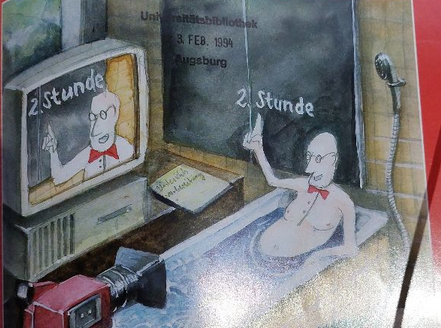Computer education for all?
Educational policy and pedagogical visions of computer education in general education schools in Baden-Württemberg, 1977-2004
The PhD project examines educational policy and media pedagogical discourses on “computer education” using the case study of Baden-Württemberg from the late 1970s to the early 2000s. It examines the problems and potentials that the investigated actors (educational politicians, teachers, parents, officials and companies) attributed to the use of computers in schools and how schools should prepare their students for an anticipated “computerized” society from the perspective of the respective actors. The work places a special focus on the discussions about the possible (re)production or leveling of inequalities through computer education.

Using a methodology derived from historical futurology, the work looks at early projections and projects on computer education: Using ministerial bureaucratic archive material, reports from model projects, a systematic analysis of relevant specialist and association journals, curricula and selected teaching materials, the work aims to work out which interests (including those outside of schools), hopes and fears accompanied “computer education” and - to this day - have shaped it.

